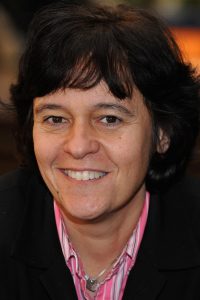“The Hussle Is Real,” a conversation inspired by the life and work of Nipsey Hussle, was held May 14 at the UCLA Luskin School of Public Affairs. The event, organized by the student-run Luskin Black Caucus and UCLA Luskin’s Social Welfare Diversity Committee, included presentations by Latoya Small, assistant professor of social welfare; Michael Lens, associate faculty director of the UCLA Lewis Center for Regional Policy Studies; and Marcus Hunter, associate professor of sociology and chair of African American Studies at UCLA. The discussion went beyond the “gangster-rapper” label to examine Hussle’s contributions to the community and impact in the context of public affairs and urban space. “When you think about Nipsey Hussle, it’s not just the gangster rap, it’s also the entrepreneurship,” Small said. “He didn’t rent a shop, he purchased the building. He hired people that were undesirable to others and talked about promoting commerce … and building business legitimately.” Lens, associate professor of urban planning and public policy, provided “numbers and history” on South L.A.’s environment and long legacy of segregation to provide a framework for Hussle’s community work. “Nipsey was the embodiment of the power to affect positive change from the ground up, and his death undoubtedly leaves a hole,” Lens said of the rapper, who was slain in March. Hussle, who was born in 1985, during America’s “War on Drugs” era and its aftermath, was a survivor, Hunter said. He played samples of Hussle’s music, asking the audience to “consider what questions come up when you meditate on Nipsey’s contributions and tragic murder.” View photos of the event on Flickr.

